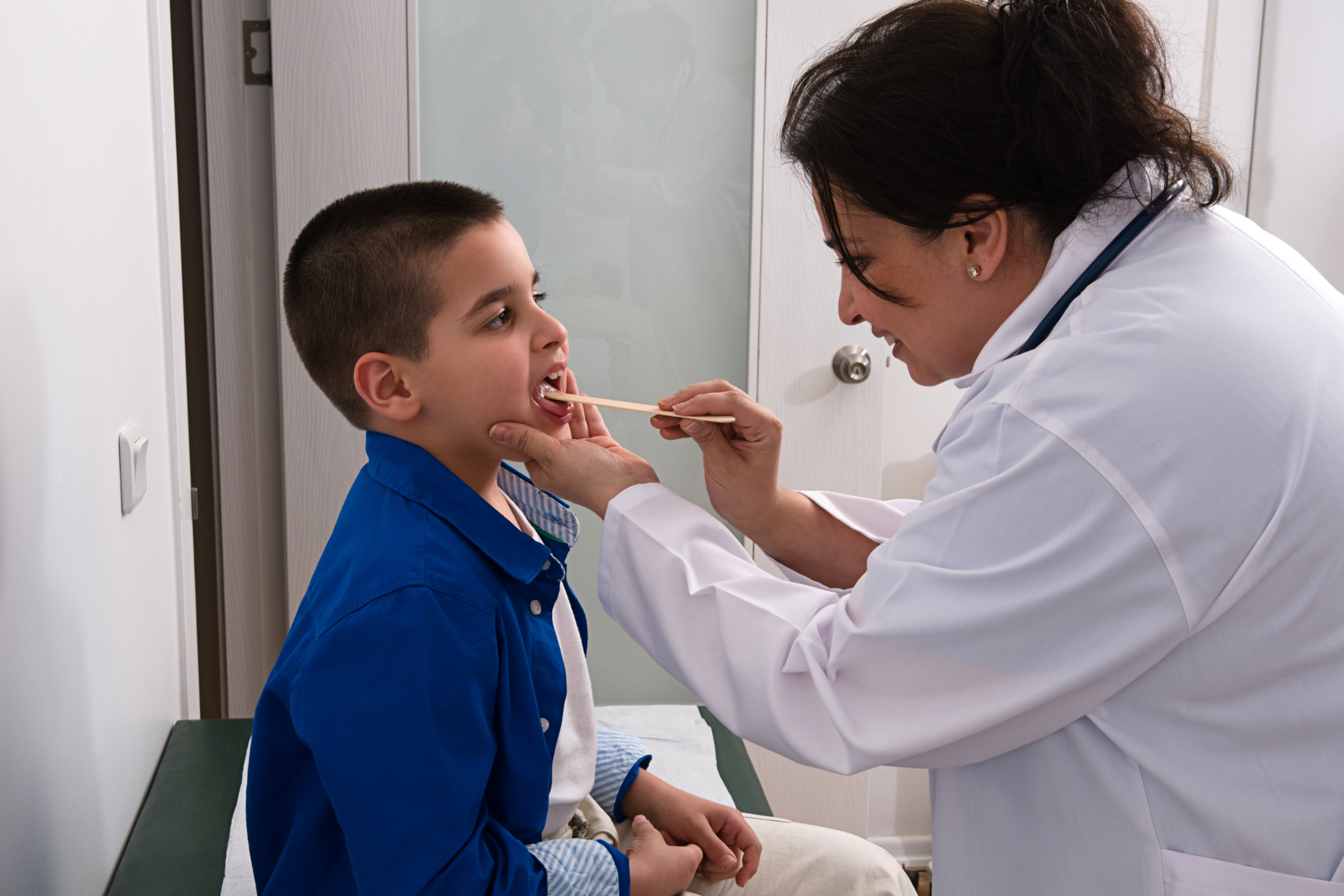Sore throats are a common symptom often seen in school-aged children and usually aren’t a cause for concern. While sore throats can be uncomfortable, many parents believe that with some rest and over-the-counter medication, their child will quickly return to normal. However, it’s important to be able to distinguish between a minor illness and a sore throat that could indicate a more serious medical issue.
Why Are Sore Throats More Common in Spring?
Sore throats are commonly associated with cold and flu season in the winter months, but they often peak in early Spring, especially in April and May. During the Spring season, various factors contribute to an increase in sore throat cases. Here are some of the main causes:
- Weather Changes: The change in temperature and increased dryness in the air can irritate the throat, making it more vulnerable to inflammation.
- Allergens: Allergens such as pollen from blooming flowers and trees, as well as mold from fallen leaves, become abundant in the Spring. These allergens can trigger allergic reactions that irritate the throat, especially in children prone to allergies.
- Viral Infections: The spring season also sees a rise in viral infections, which often present symptoms like a sore throat, fatigue, cough, and fever. With more people spending time indoors due to unpredictable weather, shared spaces become a hotspot for the spread of germs.
When a Sore Throat Becomes a Medical Emergency
A sore throat typically presents as dryness, scratchiness, redness, swelling, and painful swallowing, usually lasting only a few days. While sore throats are often related to minor illnesses, they can sometimes indicate a more serious condition. Below are some signs that your child’s sore throat may require a visit to the emergency room:
1. Difficulty Breathing or Swallowing
If your child is having trouble breathing or swallowing, or if they are drooling excessively, this may suggest swelling or a blockage in the respiratory system. It’s critical to seek immediate medical attention, as this can severely affect their ability to breathe properly.
2. High Fever
A sore throat accompanied by a fever higher than 102°F that does not improve with medication could indicate a serious infection or condition. If your child appears unusually sleepy or lethargic, it’s essential to seek immediate medical attention.
3. Severe Pain
If your child is experiencing significant pain, is unable to open their mouth fully, shows noticeable swelling on one side of the throat, or has difficulty moving their neck, these could be signs of a medical emergency.
Strep Throat in Children: What You Need to Know
Strep throat is a common cause of sore throats in children and teens. The condition accounts for 15% to 35% of sore throat cases in children 5 to 15 each year. Strep throat is caused by a bacterial infection and is highly contagious, which is why it’s important to get an expert diagnosis and treatment plan.
Common symptoms of strep throat include:
- Painful swallowing
- A high fever
- Red and swollen tonsils with white patches or streaks
- Painful or swollen neck glands with lymph nodes
If your child presents these symptoms, it’s important to consult a healthcare provider for the best treatment plan. Strep throat requires antibiotics, so an early diagnosis is crucial for recovery.
24/7 Compassionate Pediatric Care
At Wylie ER, we provide 24/7 personalized care from experts who specialize in treating children of all ages. From a sore throat to other disrupting symptoms, our dedicated team is here to help your child feel better quickly and get back to their daily activities. Our state-of-the-art facility offers rapid on-site testing and advanced laboratory services so you can receive quick and accurate results, giving you peace of mind. We’re open 24/7, including late nights and early mornings, making it convenient for your child to receive the care they deserve.
Disclaimer: As a service to our readers, Wylie ER and Nutex Health state no content on this site, regardless of date, should ever be used as a substitute for direct medical advice from your doctor or other qualified clinician.





Comments are closed